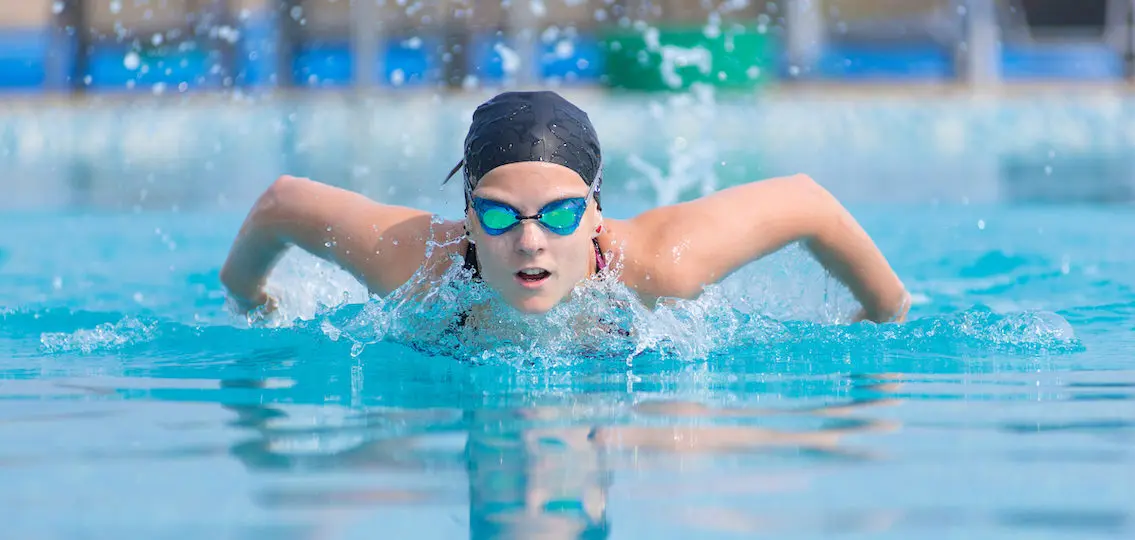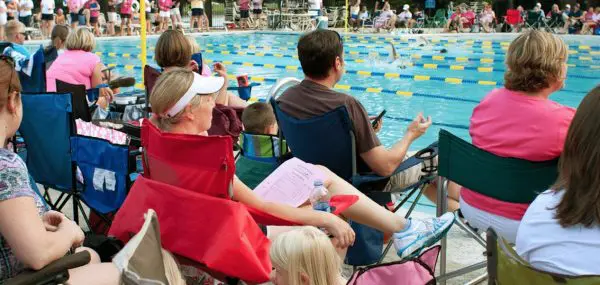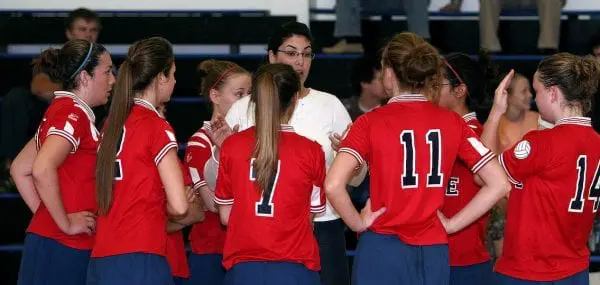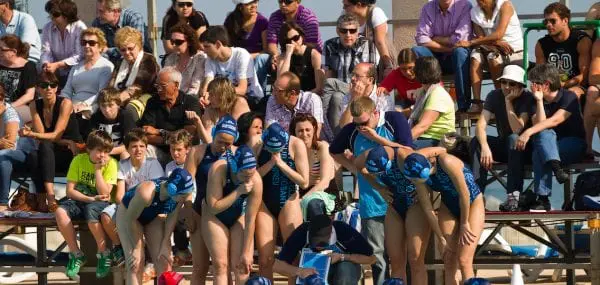How long has sport been a part of your child’s life? And perhaps not just a part of their life, but the focus of their existence?

That is the way it was for me as a competitive swimmer. Everything about my life, from high school to college to when I trained full-time to qualify and compete at the Olympic Games, was centered around sports. I had goals and nothing was going to get in the way of them.
And then that life ended.
By the time I graduated college, I was an Olympian, a two-time captain of the University of Michigan, a multiple Big Ten champion, and multiple All American and silver medalist at NCAA. I was excited to start the next chapter of my life. I assumed that I would find a new passion and be a success. My experience leaving sports was far from the dream I imagined.
Teen athletes often go through a similar cycle of commitment and expectations. They’re a close-knit group. They train intensely and constantly, hanging out with teammates and friends who all have the same goals. They all dress in the same clothes emblazoned with their team’s logo. Their lives are a tightly scheduled routine of school, homework, practices, competition, injury management, and necessary refueling built around hopes and dreams that are often nurtured from an early age. This means they often view themselves primarily through the lens of being an athlete.
But the reality is that the majority of high school athletes—even the talented ones—do not make it onto a college team. So what happens to them when this sport-focused life suddenly ends? You do not need to be an Olympian or pro player to go through the struggles of post-sport transition. Any athlete with an intense, routinized life will experience some loss when they are confronted with the need to create a life without sport at its heart.
How to Transition to Life After Competitive Sports
Be aware of the challenges your teen athlete might experience as they transition to college life and be ready to make some changes in your own behavior.
1. Remind them they’re not going from hero to zero
A cheer from the audience in the stands, a celebratory text from a friend, a parent bragging about their accomplishments, images in the media, and even daily feedback from their coach or teammates—these are some of the ways your athlete receives recognition. But this external approval focuses only on what your teen is doing, not who they are.
When that life in sport disappears, so does that particular source of recognition. Also, if your teen is leaving sport on less than a high note, they may feel that they have failed themselves and their supporters. Now is the time to have a conversation with them about the difference between their past achievements and who they are: a whole person who has developed valuable traits such as dedication, cooperation, focus, resiliency, and self-discipline through their involvement in sport. When you see them using these attributes in their new life, you can help them by verbally recognizing this as an achievement.
2. Encourage them to take responsibility
Although your athlete builds many positive attributes through sport, the choices they make are controlled by how their life is structured around them, which reduces the potential for making a bad choice—and the consequences that go along with it. They have lived a regimented life directed by parents, coaches, and competition schedules. When teens head to college, no one is directing their choices or routines, which used to include the expectation to participate in daily practices.
College students can choose to stay out all night and the consequences might be missing a class. But that is nothing compared to the threats of a coach who will put you through the gears. Now is the time to avoid scheduling their activities or making their choices for them. This will be challenging as teen athletes are accustomed to being told what to do and showing up on time. Encourage them to make positive choices around their sleep schedules, diets, exercise regimens, and free time. This is your opportunity to inspire them to take ownership of their new schedule.
3. Make mental health a priority
Unfortunately, even though parents want to protect their teens from sadness and hurt, we cannot. A significant part of their lives is shifting into a past tense. They are experiencing a loss. Signs of struggle can manifest physically, mentally, and socially.
Your athlete may feel that they can overcome the challenge of transitioning to a less regimented, sport-free life without help—or they may feel they just need to tough it out. Be aware of how big a change this is for them and give them space to be vulnerable with you. Keep the communication channels open, and if you are concerned, talk to a professional counselor.

Your child has built an incredible level of resilience through participation in sports and this will serve them well throughout their life. Let them know you are always there for them, and believe in their ability to make positive choices as they move forward with their life.





